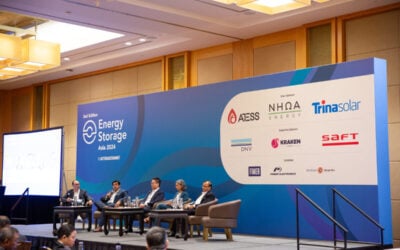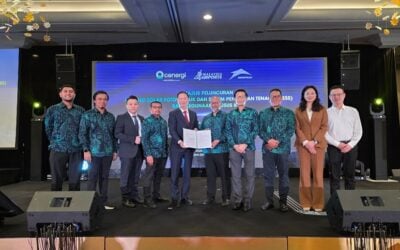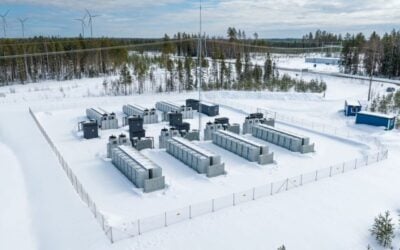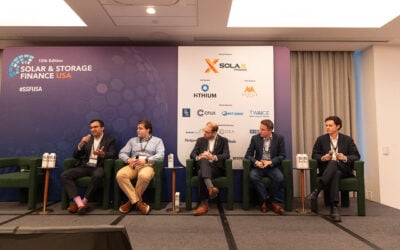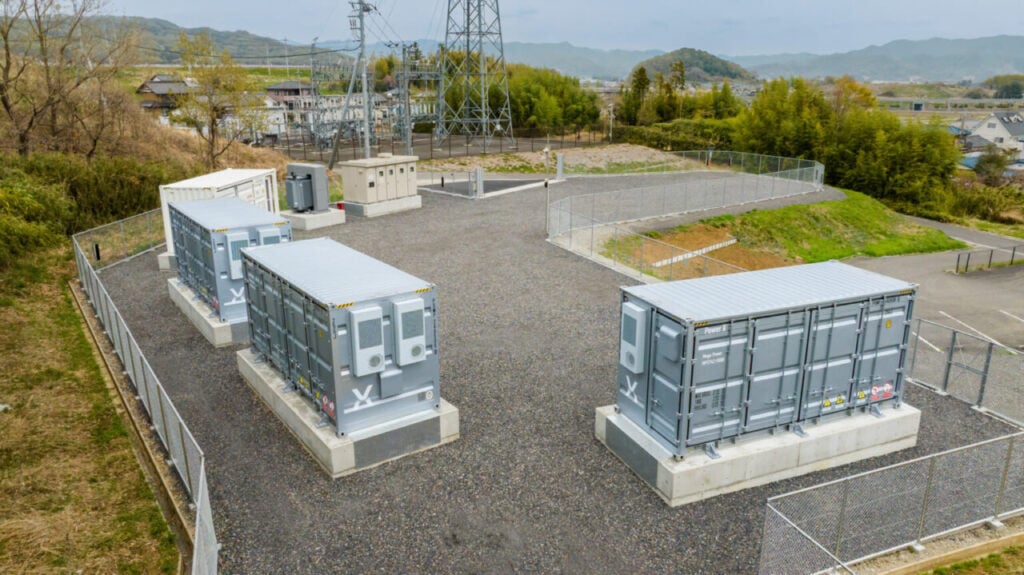
Regional electric utility companies in Japan are playing key roles in the delivery of battery energy storage system (BESS) resources.
Last week, Kansai Electric Power Company (KEPCO), in the southern-central region of Japan’s main island, Honshu, and Kyushu Electric Power Company (Kyuden), in Kyushu, Japan’s largest populated island in the south, each announced participation in grid-scale battery storage projects (7 May, 8 May respectively).
Japan’s government has recognised that energy storage must play a key role in delivering energy supply stability and security and meeting renewable energy targets of 36%-38% of the generation mix by 2030.
The target is part of a key Green Transformation (‘GX’) policy strategy toward carbon neutrality by 2050.
Try Premium for just $1
- Full premium access for the first month at only $1
- Converts to an annual rate after 30 days unless cancelled
- Cancel anytime during the trial period
Premium Benefits
- Expert industry analysis and interviews
- Digital access to PV Tech Power journal
- Exclusive event discounts
Or get the full Premium subscription right away
Or continue reading this article for free
Electricity market regulations were adapted in Japan a couple of years ago to include a definition of energy storage facilities as a grid-connected generation resource. This has been followed by the introduction of a national subsidy scheme offering Capex support for up to one-third of the cost of projects, along with a scheme for up to 50% from the Tokyo Metropolitan Government.
In addition to that initial subsidy support to kickstart the market, storage facilities can access market opportunities including balancing, wholesale and capacity markets, with 1.3GW of BESS successful in the FY2024 Long-Term Decarbonisation Power Source Auction (LTDA) results which were recently announced.
99MW/396MWh utility project in Osaka prefecture
KEPCO said construction will commence in June on Tanagawa Energy Storage Plant, a 99MW/396MWh project in Misaki, in the Sennan district of Osaka prefecture. It’s a small coastal town in Osaka Bay, about 75km from the major city of the same name.
The project’s revenues will be earned solely from electricity market transactions, KEPCO said.
Engineering construction company Kinden and infrastructure developer Japan Extensive Infrastructure (JEXI) have partnered with utility Kansai Electric Power Company on project development and provided investment, along with major Japanese trading conglomerate Sumitomo Corporation.
Commercial operation of the BESS facility is expected to commence in February 2028. KEPCO will work on its business development, battery diagnostics and operational support. Kinden and its group companies will carry out engineering, procurement and construction (EPC) duties and maintenance.
KEPCO’s 100%-owned virtual power plant (VPP) group E-Flow will manages its participation in electricity markets. JEXI helped structure and support the financing deal.
Project equity is 40% owned by KEPCO, 10% by Kinden and 50% by JEXI.
Bank MUFG participated in project financing for the Tanagawa BESS. While the bank has been involved in BESS projects overseas in markets including the UK and US for some time, it made its first energy storage project transaction in Japan last year for developer Eku Energy’s 30MW/120MWh Hirohara BESS project, which is now under construction.
Eku’s project has a 20-year offtake tolling agreement in place with utility Tokyo Gas for its output. KEPCO noted that the Tanagawa deal marks the first time MUFG has participated in a non-recourse debt financing for a debt facility which will exclusively earn merchant market revenue streams.
KEPCO said it would leverage learnings from its 48MW/113MWh Kinokawa BESS project in the Kansai prefecture of Wakayama, which was developed through a joint venture (JV) with financial services company ORIX.
Kyushu utility establishes BESS subsidiary
Kyushu utility Kyuden announced a smaller project. The project will also participate in electricity market opportunities, as the company has launched a new partnership and subsidiary.
The 2MW/8MWh BESS, in Kama City in Kyushu’s Fukuoka prefecture, is being developed by KLI New Energy, a new subsidiary of financial services group Kyushu Lease Services, with capital investment from Kyuden’s own new subsidiary, Kyuden Mirai New Energy (‘mirai’ means ‘future’ in Japanese).
The partnership’s first project will transact in three markets: renewable energy, supply and demand adjustment balancing, and the capacity market. It is scheduled to begin commercial operations in March 2026.

